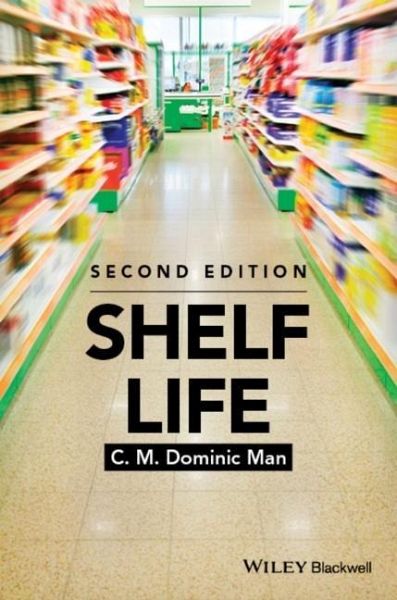
Shelf Life Shelf Life
Versandkostenfrei!
Versandfertig in über 4 Wochen
67,99 €
inkl. MwSt.
Weitere Ausgaben:

PAYBACK Punkte
34 °P sammeln!
Shelf life, a term recognised in EU/UK food legislation, may be defined as the period of time for which a food product will remain safe and fit for use, provided that it is kept in defined storage conditions. During this period, the product should retain its desired sensory, chemical, physical, functional and microbiological characteristics, as well as accurately comply with any nutritional information printed on the label. "Shelf life" therefore refers to a number of different aspects; each food product has a microbiological shelf life, a chemical shelf life, and a sensory (or organoleptic) shelf life. These categories reflect the different ways in which a food product will deteriorate over time. Ultimately the shelf life of a food product is intended to reflect the overall effect of these different aspects.
Shelf life has always been an important facet of industrial food preparation and production, as food and drink are often produced in one area and then distributed to other areas for retailing and consumption. Globalised distribution and supply chains make it imperative that food should survive the transit between producer and consumer - as a perishable commodity, food carries a high risk of spoilage. As such, a realistic, workable and reproducible shelf life has to be determined every time a new food product is developed and marketed; shelf life determination of food has become an integral part of food safety, quality assurance, product development, marketing, and consumer behaviour.
Dominic Man's Shelf Life, now in a revised and updated second edition, encompasses the core considerations about shelf life. Section 1 introduces shelf life, describes its relationship to food safety, and provides answers to the frequently asked questions around shelf life determination and testing which are a manager's chief concerns. Section 2 covers the science of the various ways in which food deteriorates and spoils, including the physical, chemical and microbiological changes. Section 3 looks at shelf life in practice, using case studies of different products to illustrate how shelf life may be determined in real life settings. This book will be invaluable to both practitioners and students in need of a succinct and comprehensive overview of shelf life concerns and topics.
Shelf life has always been an important facet of industrial food preparation and production, as food and drink are often produced in one area and then distributed to other areas for retailing and consumption. Globalised distribution and supply chains make it imperative that food should survive the transit between producer and consumer - as a perishable commodity, food carries a high risk of spoilage. As such, a realistic, workable and reproducible shelf life has to be determined every time a new food product is developed and marketed; shelf life determination of food has become an integral part of food safety, quality assurance, product development, marketing, and consumer behaviour.
Dominic Man's Shelf Life, now in a revised and updated second edition, encompasses the core considerations about shelf life. Section 1 introduces shelf life, describes its relationship to food safety, and provides answers to the frequently asked questions around shelf life determination and testing which are a manager's chief concerns. Section 2 covers the science of the various ways in which food deteriorates and spoils, including the physical, chemical and microbiological changes. Section 3 looks at shelf life in practice, using case studies of different products to illustrate how shelf life may be determined in real life settings. This book will be invaluable to both practitioners and students in need of a succinct and comprehensive overview of shelf life concerns and topics.



